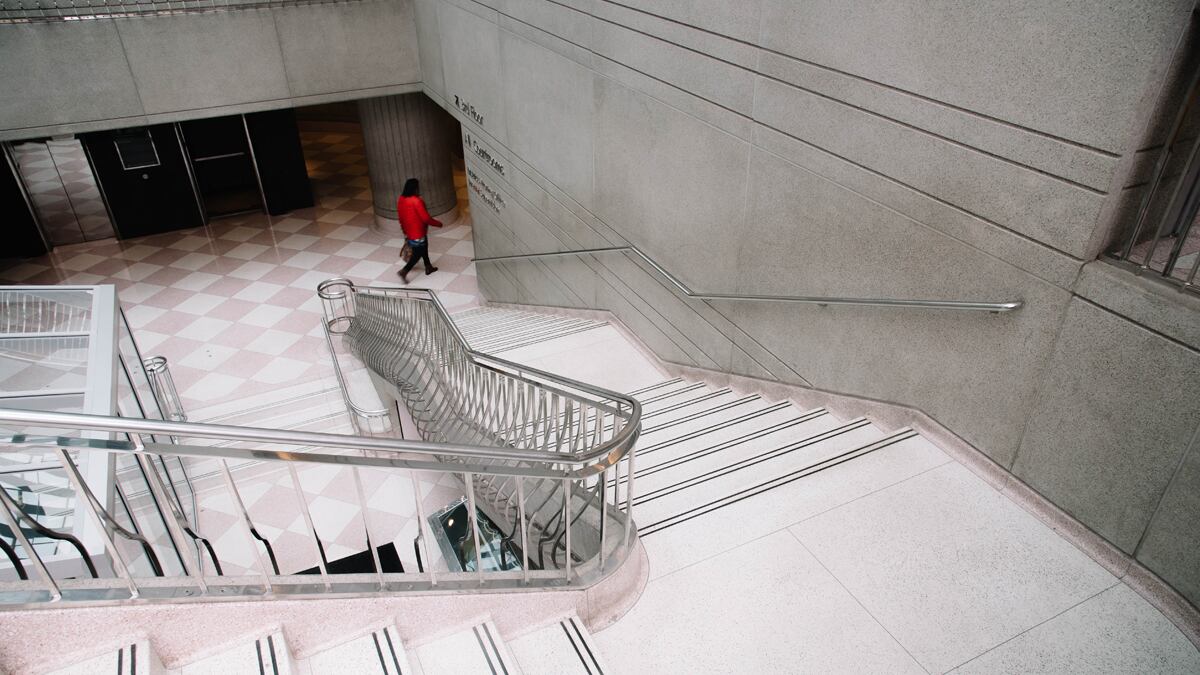A young man's daring escape from capture by U.S. Immigration and Customs Enforcement agents, apparently with the assistance of a local judicial referee, has shocked and divided the Portland legal community.
Multnomah County court referee Monica Herranz is under internal review and the target of complaints from a federal prosecutor after allegedly helping the undocumented immigrant elude ICE last month by exiting the courtroom through an employee door.
The getaway didn't ultimately keep the man from being snared by immigration officials after pleading guilty to a DUII. But it demonstrates how everyday court proceedings have mutated, and how tensions have grown within the criminal justice system, as ICE steps up deportations under President Donald Trump.
"Our job is to run a courthouse," says Multnomah County Circuit Presiding Judge Nan Waller. "It's a difficult position to be in."
Diddier Pacheco Salazar, a Mexican-born construction worker in his mid-20s, was charged Jan. 1 with driving recklessly and under the influence of intoxicants. At his first court appearance Jan. 3 he pleaded not guilty.
At his second appearance, on Jan. 27, he changed his plea to guilty in exchange for a deferred sentence and entry into a diversion program.
Two days earlier, Trump had signed executive orders starting the construction of a border wall with Mexico, stepping up deportations of undocumented immigrants, and declaring that "sanctuary jurisdictions" such as Portland could lose federal grant funding. Reports spread of increased activity by plainclothes ICE officers in and around the Multnomah County Courthouse.
Pacheco Salazar and his court-appointed attorney, John Schlosser, were aware of the risks. They knew, Schlosser says, that plainclothes ICE agents were waiting outside the courtroom on the third floor of the Justice Center at 1120 SW 3rd Ave. It appeared Pacheco Salazar might be deported before he could face justice.
"I prepped my client. I said, 'I don't know if they're going to pick you up outside or what, but here's how to prepare,'" Schlosser tells WW. "After the court appearance, I went out in the hallway and sat. My client never came out. I can't say that I'm surprised he didn't come out, but I gave him his options, and assume he had to have been escorted out some other way."
None of the parties contacted by WW will say exactly what happened next. But multiple sources confirm the outlines: At least one defendant in the courtroom that day avoided federal immigration agents by leaving through an entrance usually reserved for court employees.
On the bench in the courtroom that day was Monica Herranz, who is also on the board of directors of the Oregon Hispanic Bar Association. Herranz is what's known as a court referee: essentially a contract judge who handles lower-level criminal, civil and family court cases.
Herranz declined to speak to WW.
Her boss, Waller, also declined to discuss the incident but said she was gathering facts to review whether any policies were violated and, if so, would decide on an appropriate remedy.
About a week after the incident, Portland ICE officials told U.S. Attorney for Oregon Billy Williams about how Pacheco Salazar eluded capture. Williams was concerned that a local judge may have kept federal agents from making an arrest.
"I was troubled because, on the face of it, what I heard sounded like potential federal criminal law violations and/or ethical violations," Williams says. "Generally, we're talking about obstruction of justice."
Williams, ICE and the Department of Justice's Office of Professional Responsibility in Washington, D.C., all ultimately agreed not to pursue a criminal investigation or a bar complaint against Herranz or anyone else who may have been involved.
Instead, they decided to talk it out, most recently at a lunch meeting Feb. 22 with Multnomah County judges, including Waller, and with Portland-area ICE administrator Elizabeth Godfrey.
Waller says Herranz's name did not come up at the meeting. But both sides registered their displeasure more obliquely.
According to Waller and Multnomah County Trial Court Administrator Barbara Marcille, the judges made clear to Williams that state law forbids public employees from providing additional information beyond what's available to the general public to ICE, while Williams made it clear to the judges that they could not do anything to interfere with federal law enforcement.
"I respect what Judge Waller is saying," Williams tells WW. "I understand it. But I also understand that ICE has a job to do."
One month after Trump's immigration orders, the tension between federal and local government remains thick—and fear pervades immigrant communities. "I don't think we can reassure people [to come to court despite the ICE presence] when it's not something we can have control over," Waller said. "We don't want to do something that will give a false reassurance and then have something happen."
A regional ICE spokesperson declined to comment for this story.
As for Pacheco Salazar, ICE arrested him two weeks later at a follow-up hearing, Schlosser says. Agents saw them leaving the courtroom together and turned to follow. "They followed us down the street a little bit, and then stopped and picked him up," Schlosser says. His whereabouts are unknown.
Update: The attorney has been unable to contact his client—who, according to ICE, is currently detained in the agency's privately operated Northwest Detention Center in Tacoma, Wash.
WW staff writer Nigel Jaquiss contributed reporting. This story was updated with new quotes and information at 5 pm Tuesday, Feb. 28.
